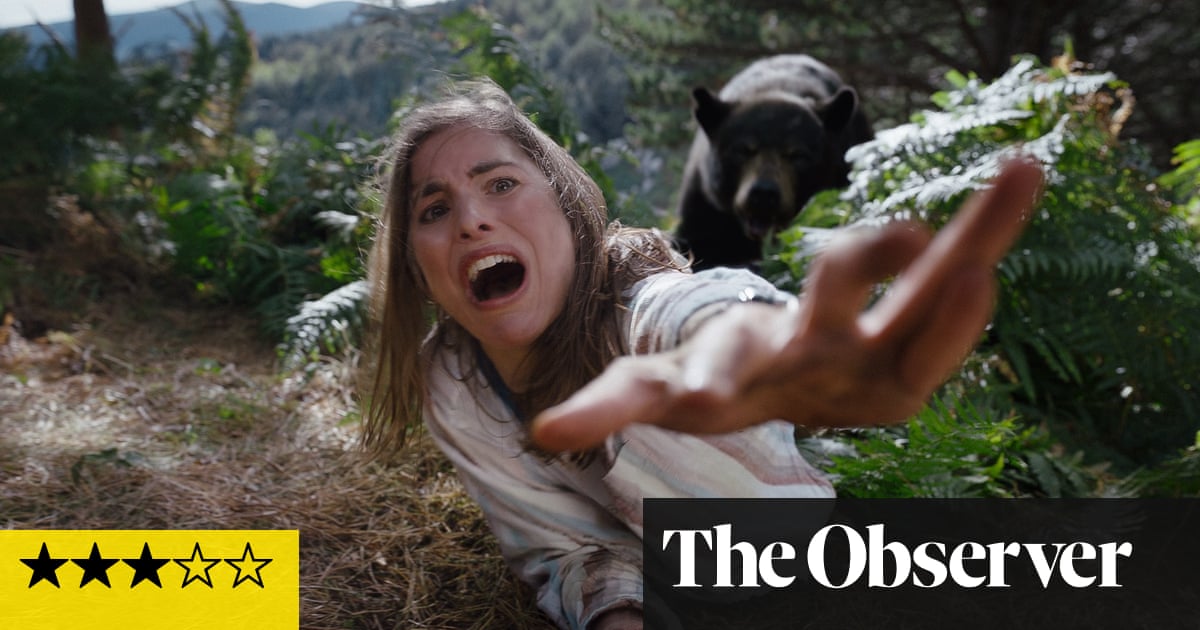
This Sky Atlantic miniseries is billed as a comedy-horror. In fact – at least to those mums who would not classify ourselves as earth mothers – it is more or less documentary. Created, written, directed and executive-produced by an entirely female team, The Baby will – depending what stage of the process you are at – catapult you back to the early days of unnatural motherhood or offer you a reasonable explanation of your current suffering: your baby is possessed and wants you dead. It is very well done.
If you are not yet in that process – or have decided against ever ripening your own crotch-fruit – then it will do much to encourage you to keep taking the tablets/slipping on the condoms/hieing yourself to a nunnery. The Baby’s 38-year-old protagonist, Natasha (Michelle de Swarte), will applaud your choice.
We meet her trying to enjoy a games night in her flat with best friends Mags (Shvorne Marks), who has had to bring her infant with her and ruined the evening’s vibe, and Rita (Isy Suttie), who reveals that she is three months pregnant. “So – it’s not too late, then?” says Natasha, whose excellent line gets a stony reception that encapsulates an entire, suddenly and irrevocably changed, dynamic in a moment. Likewise, the perfect dissatisfaction of the conversation with Mags, when – in a moment when Mags isn’t checking for poos or cleaning dummies – Natasha asks her if life is better with a baby. “It’s just a lot. All the time. Forever.” “But is it better?” “Dunno. It’s hard to explain.”
After falling out with Rita, Natasha takes herself off for a weekend in an isolated shoreline cabin at the foot of a cliff. Alas, it is here that a baby literally falls into her arms. She soon learns it cannot be discarded. Attempts to hand him over to police end with the officers being crushed by a boulder that falls from the cliff. When she tries to leave him with a kindly manager at a petrol station, a shelf collapses and kills the man. As the tagline puts it – she may not want the baby, but the baby wants her.
As we move further through the series, it becomes clear that the baby has been at this for a while. A mysterious old crone shows up with evidence that the baby has been putting women through his malevolent mill for at least two generations, sapping each individual of her free will and resources before engineering her death and moving on to its next “mother”. It is not a subtle metaphor, but the illustrations of Natasha’s new life under his aegis are all carefully drawn and deeply realistic. People talk past her, or only about him, assume there is nothing more to her than motherhood, dismiss her concerns and offer unwanted advice. We see her simple horror at changing the first “proper” nappy, as well as the way in which diabolic intent and origin comes to seem the likeliest explanation for even an ordinary amount of infant crying when you are cripplingly sleep-deprived. Every episode should come with a free IUD.
Natasha sets out to trace the baby’s previous “mothers”, gathering intel and allies as she goes. The baby’s powers extend to memory-wiping, so her friends accept that she has a child, but not her dissatisfactions or frustrations about it.
It is very funny. Fooze (Divian Ladwa) is a brilliantly idiosyncratic character, a young man who works at the burger bar where the baby acquired his last victim and who comes to Natasha’s aid with a repository of maternal instinct and baby lore much greater than hers. Apart from him – and later sightings of Natasha’s extended family – most of the humour comes from the oh-so-recognisable frustrations of Natasha’s suddenly banjaxed life, or tremendous editing of the baby’s looks and actions into clear cogitations upon his next malevolent manoeuvre. (He is played by Albie and Arthur Hills, who I assume are not of demonic heritage.)
The horror aspect remains drawn from the fairly non-grisly end of the spectrum. But Natasha’s (and de Swarte’s) fierceness – along with the clear-eyed honesty at the programme’s core – means it is never gentle. It is altogether suspenseful enough in already stressful times. The creators, Lucy Gaymer and Sîan Robins-Grace, presumably didn’t know they would be launching their offspring into a post-Roe world, but, coming at a time of victory for forced-birthers gives the depiction of Natasha’s entrapment and enslavement by this unwanted, unshakeable presence an extra frightening dimension. Welcome to 2022, when the fictional horrors can’t keep pace.












